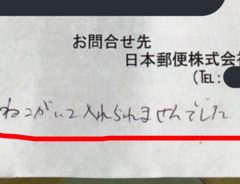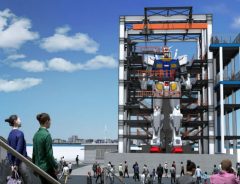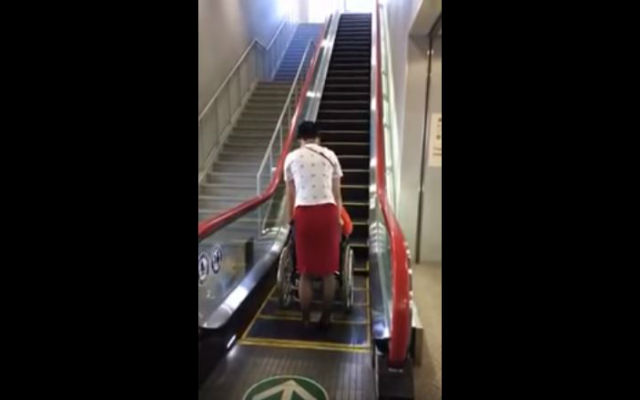- Source:
- me Wallander / @matsumoto_matsumo / @mwichary
- Tags:
- Blind / convenience / Cool / Disability / Escalators / Handicap / Hospitality / Impaired / Japan / Lifts / Omotenashi / safety / Technology / Wheelchair / YouTube
Related Article
-

Pokémon-themed fossil exhibition travels to museums across Japan
-

Cat refuses to accept that snow is cold after touching it, eats it and has Kabuki-like brain freeze
-

How & Why Japanese School Girls Have Short Skirts?
-

“Sorry, we couldn’t deliver your package because there was a cat”–Twitter user finds out his cat is rejecting his mail
-

Star Wars Japanese Ink Warrior Paintings Give Darth Vader And Stormtroopers Samurai Portraits
-

A Giant Moving Gundam Statue Is Being Built In Yokohama



It's not uncommon for visitors to Japan to return home with high praise for the customer service and hospitality shown to them, whether it be the meticulous care with which baggage handlers process luggage, or the quirky way with which a certain ramen chain stores emergency toilet paper. What may surprise some the most, however, is some of the country's infrastructure geared towards making things easier for the physically disabled.
YouTube user me Wallander uploaded the following video which, while the title "An escalator that also supports wheelchairs" is in Korean, takes place in a Japanese airport. In it, airline staff help the user of a wheelchair onto an escalator, which gradually shifts three steps into a platform for the wheelchair to rest on until it safely arrive at the top. You might argue an elevator to be more convenient, but it appears there isn't one in this area of the building.
At the very least, it's an alternative to an elevator.
Japan's approach to improving access and convenience for those with disabilities is not entirely unique, but it sometimes goes unnoticed. For instance, Yellow Tactile Ground Surface indicators are strategically placed in areas to help guide the visually impaired get around crowded areas--particularly train stations and platforms. In the same areas, staff is typically on hand to assist with escort and providing ramps when needed.
A chirping audio guide sometimes indicates the start point of an escalator as one approaches.
In some rural areas of Japan access and service like this shouldn't always be expected, but here's a way to brush up on sometimes unnoticed ways in which Japan strives to create intuitive interfaces and customer service for all types of people.